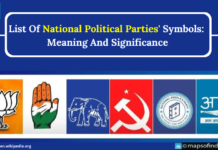India is a country where the economy is developing very fast and it is evident that in a fast economically developing country, economic competitions will be stiff. However, the fact remains that corruption in India is also developing at almost the same rate as the economy. There is corruption involved in every strata of the country. So the participants in the economic development race are not always fair and square. Even the big business houses and private enterprises often resort to illegal activities like cartelizing, price fixing and rigged bidding in search of a shortcut to success and multiplying their profits at the cost of the consumers. This in turn severely affects the economic health of the country. Keeping these facts in mind, the Government of India established the Competition Commission of India (CCI) on October 14, 2003. CCI became operational in May, 2009.
Consisting of a Chairperson and 6 members (all Central Government employees), CCI is empowered with the ability to enforce The Competition Act 2002 throughout India to arrest malpractice that can have a negative effect on India’s economic growth. CCI is vested with the responsibility of maintaining a strict vigilance on the overall economic competition in the country. It ensures that there is absolute transparency in the economic competitions and impose heavy fines on both the private and public entities who are trying to disrupt a smooth economic growth through illegal activities to suit their own purposes by imposing the Competition Act. Other responsibilities of the CCI include maintaining a strong control over the market to protect the interest of the consumers and their overall welfare. In short, the CCI is responsible for spreading awareness regarding the benefits of healthy competition and implementing a transparent competition practice in our country by eradicating corruption.
CCI has exposed many scams successfully in the past and meted out appropriate penalties to dissuade such harmful practices. One of the important achievements of CCI in the recent past was the breaking up of the cement cartel. The eleven cement companies involved in the scam were big corporate houses namely ACC, Ambuja Cements Limited, Ultratech Cements, Grasim Cements (now a part of the Ultratech), JK Cements, India Cements, Madras Cements, Century Cements, Binani Cements, Lafarge India and Jaypee Cements. Pursuing a complaint lodged by the Builders Association of India, the Director General of Investigations revealed prima facie evidence of cartelizing, price fixing and other related activities like illegally limiting and doctoring market supplies against these companies. The penalty slapped on these alleged companies were Rs 6,000 crore (US$ 1.1billion), 50% of their profit for the years 2009-2010 and 2010-2011, with a paying up period of 90 days. The alleged companies have also been instructed to withdraw themselves from any agreement or market activities. This is, so far, the highest fine imposed by CCI on any industrial body. The Cement Manufacturers Association was not spared either and a penalty was imposed on them as well. After this incident CCI stated, “While imposing penalty, the Commission has considered the parallel and coordinated behaviour of the cement companies on price, dispatch, and supplies in the market”.
Another case that has come under the scrutiny of CCI in 2013 involves the cargo sector of some of the major private airlines of our country. A combined complaint lodged by some of the major courier and cargo companies of our country namely DTDC, Aramex India, Blue Dart, DHL Express, Gati, and First Flight, through the Mumbai based Express Industry Council of India alleged the five airlines – Jet Airways, Spice jet, Air India, GoAir and Indigo, of cartelization. An official source of CCI stated, “We have received a complaint recently against five airline operators, alleging there is a concerted effort by them to levy a uniform rate of fuel surcharge on air cargo, often on the same day. This is affecting the services of cargo companies and their consumers”. The complaint is based on the fact that the airlines buy aviation fuel at different rates, but a uniform rate of tax is being imposed on the cargo companies in the name of fuel surcharge when no such provisions exist, a practice that has been in existence since 2008. Efforts on the part of CCI to contact the involved airlines proved futile as the airline officials are purposely avoiding the CCI enquires, but investigation continues. As soon as irrefutable evidence is gathered against the airlines involved, proper steps will be taken.
However, the most important achievement of CCI in 2013 is imposing a penalty of Rs 50 lakhs on Temasek, a foreign company, for its failure to file a mandatory application in time with CCI. Temasek, a Singapore based investment company with a portfolio of US$ 169 billion is flustered by CCI’s actions and has denied any immediate reaction until they themselves are sure that the penalty is justified . Temasek was late by actually more than thirteen months to file the necessary document where the stipulated time period was 30 days. Temasek has made a lot of private equity investments including the ICICI Bank in our country. Among them was a proposal to acquire some shares from the DBS group. Temasek was supposed to inform CCI about this proposal of acquisition within 30 days but failed to do so. Temasek’s excuse is that, its lawyers advised them that no filing of formal document will be necessary to the CCI for transacting with the DBS. However, both Temasek and DBS are foreign companies and the proposed deal was eventually cancelled, so the penalty amount decided by CCI was only Rs 50 lakhs. Else CCI could have slapped a fine in excess of Rs 31,000 crores, 1% of the combined holdings of DBS and Temasek, as per CCI norms for such defaulters.
Even the exorbitant price of the vegetables, in spite of an adequate monsoon, has come under the CCI’s magnifying glass and investigations are ongoing to figure out the discrepancies. India needs more statutory bodies like the CCI, answerable to the Government of India only. Lone crusaders against corruption like Arvind Kejriwal will not be able to even dent the armour of corruption in India. Only combined efforts of organizations like CCI can end corruption and bring about a fair and transparent practice of competition in today’s high speed economic development of our country.




